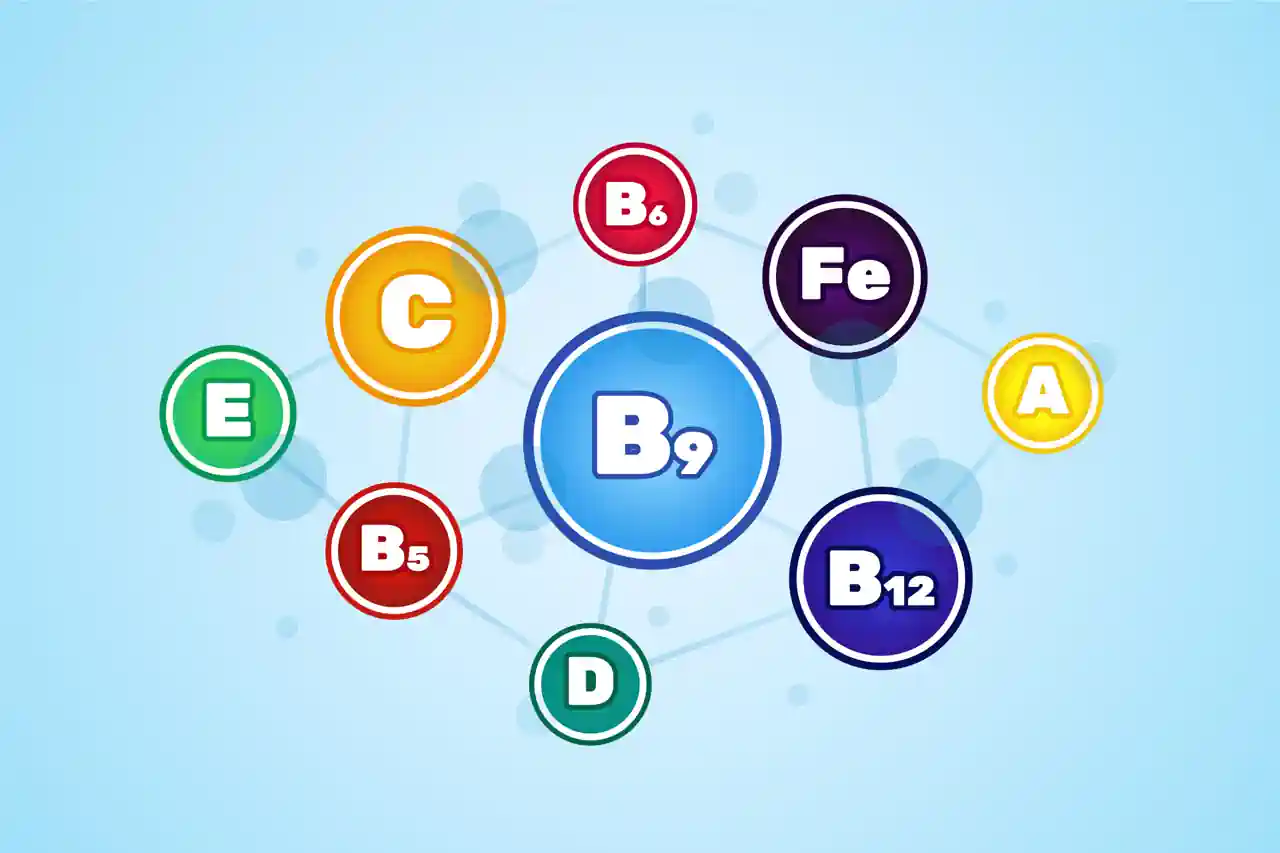Are you looking to boost your overall health and well-being? If so, it’s time to get to know the incredible world of Vitamin B. This group of essential nutrients plays a vital role in keeping your body functioning at its best, and understanding its benefits can lead to a healthier you.
What is Vitamin B?
Vitamin B is not a single vitamin, but a group of eight distinct vitamins that are essential for various bodily functions. These include B1 (thiamine), B2 (riboflavin), B3 (niacin), B5 (pantothenic acid), B6 (pyridoxine), B7 (biotin), B9 (folate), and B12 (cobalamin). Each B vitamin has its unique role to play in maintaining your health.
The Benefits of Vitamin B
Vitamin B1 (Thiamine)
- Energy Production: Thiamine is crucial for converting carbohydrates into energy, making it essential for overall vitality.
- Nerve Function: It supports proper nerve function, which is vital for muscle contractions and coordination.
Vitamin B2 (Riboflavin)
- Cell Growth and Repair: Riboflavin aids in the growth, development, and repair of tissues in the body.
- Antioxidant Activity: It acts as an antioxidant, helping to protect cells from damage by free radicals.
Vitamin B3 (Niacin)
- Heart Health: Niacin can improve cholesterol levels by raising “good” HDL cholesterol and lowering “bad” LDL cholesterol.
- Skin Health: It can help manage skin conditions like acne and improve overall skin health.
Vitamin B5 (Pantothenic Acid)
- Stress Reduction: Pantothenic acid is involved in the production of stress hormones and may help alleviate stress.
- Wound Healing: It plays a role in wound healing and skin health.
Vitamin B6 (Pyridoxine)
- Brain Development: Pyridoxine is crucial for brain development and function, particularly during pregnancy and infancy.
- Hemoglobin Production: It is involved in the production of hemoglobin, the protein in red blood cells that carries oxygen.
Vitamin B7 (Biotin)
- Hair and Nail Health: Biotin is often associated with healthy hair, skin, and nails. It’s commonly found in beauty supplements.
- Metabolism: It plays a role in the metabolism of carbohydrates, fats, and proteins.
Vitamin B9 (Folate)
- Fetal Development: Folate is crucial during pregnancy as it helps prevent neural tube defects in developing fetuses.
- Heart Health: It may reduce the risk of heart disease by reducing homocysteine levels in the blood.
Vitamin B12 (Cobalamin)
- Red Blood Cell Production: Cobalamin is essential for the formation of red blood cells, preventing anemia.
- Nervous System: It is vital for maintaining a healthy nervous system and may help protect against cognitive decline.
In addition to these individual benefits, B vitamins often work together synergistically in various metabolic processes. A deficiency in one B vitamin can affect the functioning of others, emphasizing the importance of a well-balanced diet that includes a variety of foods rich in B vitamins.
Remember that individual needs for B vitamins can vary based on factors like age, sex, and overall health. Consulting a healthcare professional or a registered dietitian can provide personalized guidance on B vitamin intake to support your specific health goals and needs.
Sources of Vitamin B
Vitamin B1 (Thiamine)
- Whole Grains: Foods like brown rice, whole wheat bread, and oatmeal are excellent sources.
- Legumes: Beans, lentils, and peas are rich in thiamine.
- Nuts and Seeds: Sunflower seeds, macadamia nuts, and flaxseeds contain thiamine.
Vitamin B2 (Riboflavin)
- Dairy Products: Milk, yogurt, and cheese are primary sources.
- Lean Meats: Lean cuts of beef, chicken, and pork are riboflavin-rich.
- Leafy Greens: Spinach, broccoli, and asparagus also contain riboflavin.
Vitamin B3 (Niacin)
- Meat and Poultry: Chicken, turkey, and beef liver are niacin sources.
- Fish: Tuna, salmon, and mackerel are high in niacin.
- Peanuts: These legumes are niacin-rich snacks.
Vitamin B5 (Pantothenic Acid)
- Avocado: Avocado is a top source of pantothenic acid.
- Whole Grains: Brown rice and whole wheat bread also provide pantothenic acid.
- Mushrooms: Shiitake mushrooms, in particular, contain this vitamin.
Vitamin B6 (Pyridoxine)
- Chickpeas: Chickpeas, also known as garbanzo beans, are a great source.
- Bananas: This fruit is a good source of pyridoxine.
- Chicken: Skinless chicken breast is rich in vitamin B6.
Vitamin B7 (Biotin)
- Eggs: The yolk of eggs is the primary source of biotin.
- Nuts: Almonds, peanuts, and walnuts contain biotin.
- Sweet Potatoes: These are a non-animal source of biotin.
Vitamin B9 (Folate)
- Leafy Greens: Spinach, kale, and collard greens are folate-rich vegetables.
- Legumes: Lentils, chickpeas, and black-eyed peas provide folate.
- Fortified Foods: Some cereals and bread are fortified with folate.
Vitamin B12 (Cobalamin)
- Meat and Seafood: Beef, pork, lamb, and fish like salmon and trout are excellent sources.
- Dairy Products: Milk, yogurt, and cheese contain vitamin B12.
- Eggs: Eggs also provide this vitamin.
While these are some primary sources of B vitamins, it’s important to maintain a well-rounded diet to ensure you get a variety of nutrients. For vegetarians and vegans, it can be essential to pay special attention to sources of B12, as it is primarily found in animal-based foods. In such cases, fortified foods and supplements may be necessary to meet B12 requirements.
Additionally, cooking methods can affect the vitamin content in foods. Some vitamins, like riboflavin and thiamine, are sensitive to light and can be lost during food processing and storage. Steaming or microwaving vegetables can help preserve their B vitamin content compared to boiling, which may lead to nutrient loss in the cooking water.
Incorporating a variety of foods rich in B vitamins into your diet is key to reaping the benefits of this essential nutrient group. However, if you have dietary restrictions or specific health concerns, consult a healthcare professional for guidance on supplementation.
Remember, your body relies on the power of Vitamin B for everything from energy production to brain health and more. Make sure you’re getting enough to support your overall well-being.
Sources:

